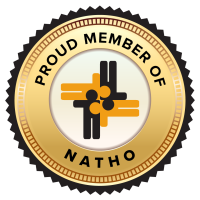Embarking on a career as a travel nurse is an exciting journey, offering unique opportunities and experiences. However, one of the most crucial questions for those aspiring to enter this field is how much experience do you need to be a travel nurse? Understanding the specific requirements and preparing adequately is vital for success in this dynamic and rewarding profession. This article explores the essential experience levels, industry expectations, and the foundational skills necessary for a flourishing career in travel nursing.
Understanding the Industry Standard
Minimum Experience Requirements
Historically, healthcare facilities and travel nursing agencies have expected candidates to have at least one to two years of experience in the specific unit they wish to work in. This requirement ensures that nurses have adequate exposure and expertise in their chosen specialty before embarking on a travel nursing career. For instance, if you’re looking to work in a cardiac unit, you should have one to two years of experience in a similar setting.
The Importance of Recent Experience
It’s not just about having experience but having recent experience. Hospitals and clinics want to ensure that the skills and knowledge of travel nurses are up-to-date with current practices and technologies in healthcare. This emphasis on recent experience ensures that travel nurses can integrate seamlessly into new environments and provide the best care possible.
Gaining Comprehensive Nursing Experience
Learning the Business of Nursing
Before rushing into travel nursing, it’s crucial to understand and master the business of being an effective nurse. This mastery goes beyond basic nursing skills and encompasses patient care, bedside manners, collaboration with doctors and other healthcare professionals, and understanding the overall healthcare system.
Exposure to a Variety of Scenarios
The nature of bedside nursing exposes nurses to a wide range of situations, each contributing to their growth and expertise. In the first few years, nurses encounter diverse patient cases, learn to work with different healthcare teams, and adapt to various hospital protocols and cultures. This exposure is invaluable in preparing for the unpredictable and dynamic settings of travel nursing.
Building a Solid Foundation
The initial years of nursing are about laying a strong foundation. In these formative years, nurses develop critical thinking skills, clinical judgment, and the ability to handle high-pressure situations. These skills are crucial for travel nurses who often step into challenging environments and are expected to adapt quickly.
Preparing for a Career in Travel Nursing
Assessing Individual Readiness
The decision to become a travel nurse should be based on personal readiness, not just meeting the minimum experience requirements. Prospective travel nurses should evaluate their comfort level with various nursing skills, adaptability to new environments, and ability to manage the unique demands of travel nursing.
Continuous Learning and Improvement
Even after meeting the minimum experience criteria, the learning journey doesn’t stop. Aspiring travel nurses should continuously seek opportunities to enhance their skills, stay updated with the latest in healthcare, and be open to feedback and learning from each assignment.
Conclusion
Transitioning to travel nursing requires not just meeting a certain number of years of experience but building a robust and diverse nursing skill set. It’s about being well-prepared, adaptable, and continuously evolving as a healthcare professional. For those considering this career path, it’s essential to assess individual readiness and commit to ongoing learning and improvement.
If you’re contemplating a career in travel nursing or have further questions, feel free to contact us for more information and guidance.








